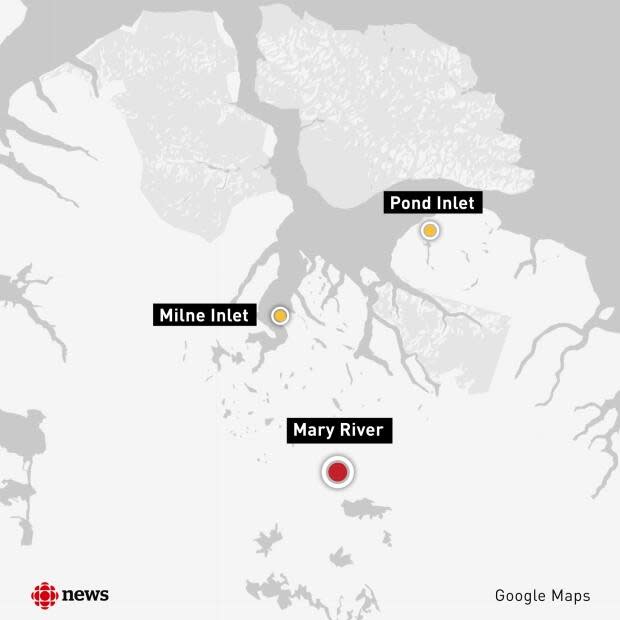Communities resist Baffinland and Ottawa's push for public hearings
Baffinland Iron Mines Corporation says if a Nunavut regulator further delays its Mary River Mine expansion it would cause "extreme prejudice" against the company and be a "breach of procedural fairness," according to documents filed on the Nunavut Impact Review Board's public registry.
The board recently released a suggested schedule of meetings over the next three months to address the company's Phase 2, which includes using rail lines to transport ore within Baffin Island. The mine is about 100 kilometres from Milne Inlet on north Baffin Island. Those meetings, which have been suspended since March due to COVID-19, must occur before a public hearing can happen.
But if the board — which assesses the impact of mining activity in Nunavut — goes ahead with its proposed schedule, it would do so against the wishes of the mayors and hunters of the five impacted Nunavut communities.
"Baffinland will suffer prejudice if the board further delays," CEO Brian Penney swore in an affidavit dated Aug. 4.
The affidavit was filed with a motion by Baffinland calling on the board to schedule a full public hearing no later than Oct. 30.
Penney lists prejudices to the company's "financial viability" and its obligations to employees and contractors.
Penney sent a letter to the board dated July 24 where he made similar points and used similar legal terms like "extreme prejudice" and "breach of procedural fairness."

In a letter dated July 31, the mayors and hunters and trappers organizations of Pond Inlet, Igloolik, Sanirajak, Arctic Bay and Clyde River strongly disagreed with Penney's letter and suggested timeline.
"We disagree fundamentally with the arguments and claims in Mr. Penn[e]y's [July 24] letter and are in the process of preparing a detailed response," the letter said.
This heated exchange comes after a $1 billion Inuit Certainty Agreement was signed between the company and the Qikiqtani Inuit Association (QIA). The agreement resolved many outstanding technical issues and granted Inuit more involvement in environmental assessments.
The organizations struck the agreement while pre-hearing meetings were delayed since March because of the pandemic.
Those meetings must occur before a public hearing.
The federal minister of northern affairs supported Baffinland and QIA's call to resume the hearing process in a letter dated July 13.
"I am writing to you today ... to request resuming the public review process," Minister Dan Vandal wrote to the board.
Vandal invoked his authority under the Nunavut Planning and Project Assessment Act to inform the review board that this file is a priority and must be addressed in a "reasonable period."
Vandal did not specify a time period.
Public hearing dates disagreement
With the easing of pandemic restrictions, the board issued a letter dated July 29 with suggested dates over the next three months to conduct the meetings. The suggestions include in-person meetings in Pond Inlet with audio and video links in Iqaluit and another unnamed "southern hub."
The board then suggested three pre-hearing meetings for Aug. 31 to Sept. 1, Sept. 28 to 30, and Sept. 30 to Oct. 1.
The mayors and hunters of the five communities said in their letter that they were not consulted on this schedule, would not have enough time to prepare, and have not been provided enough material in Inuktitut by Baffinland or QIA to inform their decisions.
"We do not support resuming the review process at this time … We would be proceeding in protest and under duress," their letter said.
But Baffinland argues that there is no more need for delays, especially given the Inuit Certainty Agreement.
"The expansion of the Mary River project operations under Phase 2 is crucial to the ongoing economic viability of the project," the company said.

